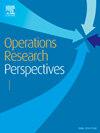基于深度学习和DNDEA模型的两阶段石化可持续供应链效率预测
IF 3.7
4区 管理学
Q2 OPERATIONS RESEARCH & MANAGEMENT SCIENCE
引用次数: 0
摘要
供应链的效率对于改善管理决策和增强战略规划能力至关重要。本研究提出了一种新颖的深度学习与两阶段供应链框架的集成,以评估28个石化装置在90个月内的效率。基于可持续性原则,采用动态网络数据包络分析(DEA)模型,对不同时间跨度供应链的相对效率进行测度和比较。为了预测供应链中未来的投入产出关系,提出了一种先进的两层长短期记忆模型。该基于lstm的预测系统显示出优异的准确性,均方误差(MSE)为0.0004,均方根误差(RMSE)为0.0208。此外,训练过程中损失函数的变化趋势也证实了所提出的深度学习方法的可靠性和稳定性。LSTM模型的精确预测能力使管理人员能够主动识别和解决生产设施的低效率问题,而不是依赖于被动的策略。这种主动的方法可以更好地分配资源,提高整个石化供应链的运营绩效。通过将深度学习与动态网络DEA模型相结合,本研究为工业应用中的预测效率分析和绩效评估提供了一个强大的框架。建议的框架为决策者提供了一个实用的评估工具,以确定高效和表现不佳的供应链,并为改进设定现实的基准。该方法具有可扩展性和适应性,适用于多阶段供应链和生产系统的实际评估。研究在两个阶段的案例研究中达到高潮,说明了所提出框架的实际适用性。本文章由计算机程序翻译,如有差异,请以英文原文为准。
Forecasting efficiency of two-stage Petrochemical sustainable supply chains using Deep Learning and DNDEA Model
The efficiency of supply chains is essential for improving managerial decision-making and enhancing strategic planning capabilities. This research presents a novel integration of deep learning with a two-stage supply chain framework to assess the efficiency of 28 petrochemical units over a period of 90 months. Based on sustainability principles, a dynamic network data envelopment analysis (DEA) model is employed to measure and compare the relative efficiency of supply chains operating across different time horizons. To forecast future input–output relationships in the supply chain, an advanced two-layer Long Short-Term Memory (LSTM) model is proposed. This LSTM-based prediction system demonstrated exceptional accuracy, achieving a low Mean Squared Error (MSE) of 0.0004 and a Root Mean Square Error (RMSE) of 0.0208. Additionally, the trend of the loss function during training confirmed the reliability and stability of the proposed deep learning approach. The precise forecasting capability of the LSTM model enables managers to proactively identify and address inefficiencies in production facilities before they occur, rather than relying on reactive strategies. This proactive approach allows for better resource allocation and improved operational performance across petrochemical supply chains. By integrating deep learning with dynamic network DEA models, this study offers a robust framework for predictive efficiency analysis and performance evaluation in industrial applications. The suggested framework provides decision-makers with a pragmatic assessment instrument to identify efficient and underperforming supply chains and set realistic benchmarks for improvement. This methodology is designed to be scalable and adaptable, making it suitable for real-world evaluations of multi-stage supply chains and production systems. The research culminates in a two-phase case study, illustrating the practical applicability of the proposed framework.
求助全文
通过发布文献求助,成功后即可免费获取论文全文。
去求助
来源期刊

Operations Research Perspectives
Mathematics-Statistics and Probability
CiteScore
6.40
自引率
0.00%
发文量
36
审稿时长
27 days
 求助内容:
求助内容: 应助结果提醒方式:
应助结果提醒方式:


